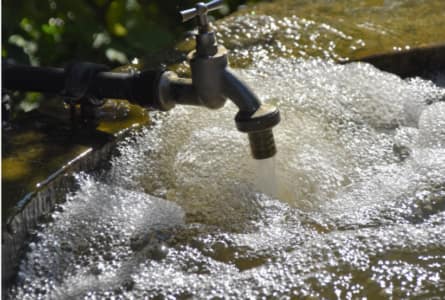How to conserve water is an important question and we have some actionable tips for you to begin your plan at home.
Our ecosphere is dominated by water. Up to 70% of the planet is taken up by it [1]. However, much of it is salt water and while the oceans feed us and are central to our water cycle, we can’t drink it. In order to continue existing as living things and to maintain our environment, we require clean water. Water is essential because it allows human activities to take place.
Clean water is essential for both human health and the environment. It helps to prevent disease and keeps ecosystems healthy. Moreover, clean water is a key part of sustainable development, as it helps to reduce the use of resources. In addition, access to clean water can help to improve economic opportunities and reduce poverty.
Unfortunately, more and more people are facing a clean water shortage. Water is one of the natural resources we should conserve from generation to generation.
How to Cut Your Water Consumption
Stop using your dishwasher (so much)
 Dishwashers help you to wash cooking and eating utensils easily and fast. They are useful, especially with lots of dishes. But each wash cycle can consume gallons of water. Enough to meet other water needs around the home.
Dishwashers help you to wash cooking and eating utensils easily and fast. They are useful, especially with lots of dishes. But each wash cycle can consume gallons of water. Enough to meet other water needs around the home.
When considering water conservation, many people debate the benefits of handwashing dishes versus using a dishwasher. Some people feel that handwashing dishes wastes more water, while others believe that it is the more environmentally friendly option.
Most studies have found that handwashing dishes actually uses less water than using a dishwasher. A study by the United States Geological Survey found that handwashing dishes used 2 gallons of water per cycle, while running a dishwasher used 4 gallons per cycle. The study also found that if you use an air dryer instead of a towel to dry your dishes, it will save an additional 1 gallon of water per cycle.
Additionally, when you run a dishwasher, you are using hot water, which takes longer to cool down than cold water. This means that your dishwasher is using energy to heat the water, which can increase your electric bill.
To reduce the consumption of water in society, always using your dishwasher is not advisable. Washing using the manual old way is the best option as long as you don’t let the water run continuously. And if you use your dishwasher, try to fill it prior to engaging.
Water Evaporation
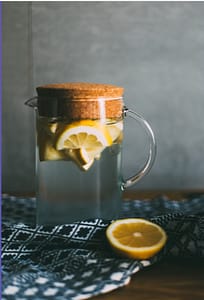
Water evaporation is a natural process that cannot be eliminated, but it can be reduced. There are many ways to conserve water and prevent it from evaporating around the home. One way is to use smaller water containers. If there is less water in the container, then there is less surface area for the water to evaporate. It is also important to keep the water containers covered when not in use. This will help to keep the water from evaporating and losing valuable moisture.
Another way to reduce evaporation is to group plants together. Plants release moisture into the air and by grouping them together, you can minimize the amount of moisture lost.
Finally, make sure that your irrigation system is properly calibrated and functioning properly. Over watering can lead to excess evaporation and wasted water.
Check out our article Develop Energy Saving Routines where the subject of saving energy at home is dealt with in detail.
Cultivate water minimalist plants
While many people think about conserving water when it comes to outdoor activities, watering plants is also an important aspect of water conservation. There are a number of house plants that don’t need much water, so if you’re looking for ways to reduce the amount of water you use each week, consider adding one or more of these plants to your home.
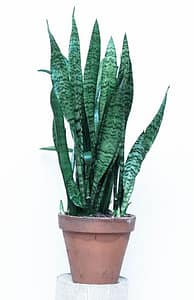
There are plants which can survive in a hot environment. Those types of plants are called Xerophytes and they are drought resistant plants which do not need frequent irrigation. They can withstand that condition for months without wilting. Having these kinds of plants will save us from having to water each day.
Succulents are plants that have evolved to conserve water in their leaves and stems. Many succulents come from arid climates, where water is scarce. Because of their adaptations, succulents need far less water than other plants to thrive.
One way to reduce the amount of water your garden needs is to use succulents. Succulents can go for long periods of time without being watered, making them an ideal choice for water-conservation minded gardeners. They come in a variety of shapes and colors, so there’s sure to be one that will fit in with your landscape design.
When you do water your succulents, be sure to give them a good soaking. They should never be allowed to dry out completely, but they don’t need nearly as much water as other plants.
Inspect Pipes and Faucets
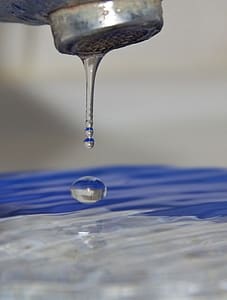
Leaky faucets are one of the most common sources of water waste in homes. A faucet that leaks just one drip a minute can waste more than 3,000 gallons of water a year. That’s enough water to fill a backyard swimming pool!
There are several things you can do to stop a leaky faucet and conserve water. If the faucet is leaking from the handle, replace the washer. If the faucet is leaking from the spout, tighten the packing nut or replace the packing washer.
Call a plumber if you can’t fix the leaky faucet yourself. It may be expensive to fix a leaky faucet, but it’s worth it when you consider how much water you can save by doing so.
Benefits of Cutting Water Usage
It is necessary that we reduce the way we consume water. Check out the importance of cutting water usage below;
- Cost-wise
- Energy conservation
- Management practice
Cost-wise
Cutting water usage is equivalent to cutting down the bills spent monthly. Water usage in industries and homes increases our bills and if we can reduce the quantity of water used for household work or in industries, our bill will reduce. That is when you will take the reduction of water seriously. Likewise, the cost of distributing water and its treatment lowers the expenses of individuals or governments.
Water leaks can be a major waste of water and money in an average household. Fixing a leaky faucet can save up to 3,000 gallons of water per year. A running toilet can waste up to 200 gallons of water per day. That is 7,300 gallons of water per year! Fixing these leaks can save an average household more than $100 per year on their water bill.
Energy conservation
Some people use cold water, others prefer it warm or hot. Cooking generally requires hot water and heat energy is needed to boil the water. The heat and time depend on the volume of water. Thus, as the amount of water is reduced, heat energy and time spent decrease.
Water heating is one of the most expensive features of home ownership, costing homeowners an average of $350 a year. Heated water is not only used for bathing and washing dishes, but also for cleaning the floors and other surfaces in the home. Fortunately, there are several ways to conserve water and save money on cooking with less heated water.
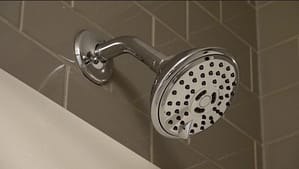
How to Conserve Water at Your Home
Everyone needs to understand that water is valuable. There is no substitute for it.
In conclusion, conserving water is important for both environmental and financial reasons. Not only does it help preserve our natural resources, but it can also save homeowners money on their water bills.
There are many ways to conserve water at home, such as those listed above. You can help to conserve water at home by taking shorter showers, fixing leaks, and watering plants wisely. By making a few small changes, everyone can do their part in conserving this precious natural resource.
References
[1] National geographic. Our oceans are under attack by climate change, overfishing.

